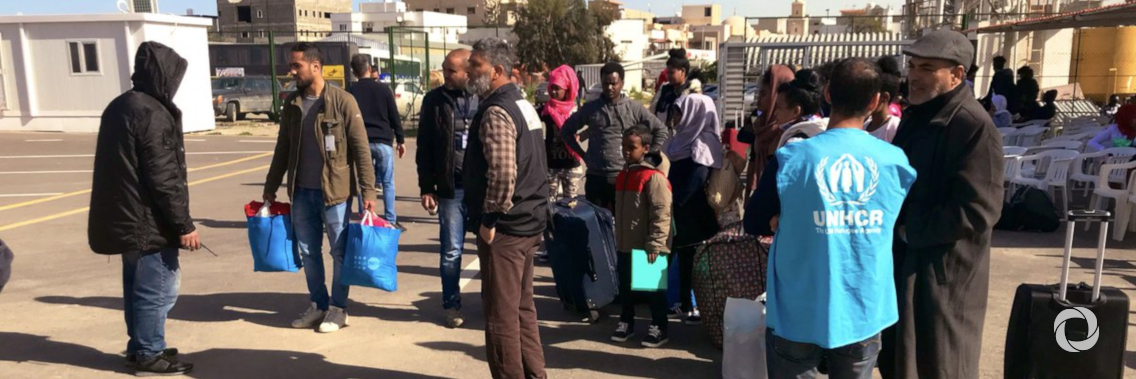Amid violent clashes and a deteriorating security situation in Tripoli, 149 vulnerable refugees and asylum-seekers were evacuated to safety in Rome.
The evacuees are from Eritrea, Somalia, Sudan and Ethiopia. They include 65 children, 13 of them below a year in age. One of the children was born just two months ago.
Many of the evacuees need medical treatment and are suffering from malnourishment.
The group were moved from UNHCR, the UN Refugee Agency’s Gathering and Departure Facility (GDF), after surviving months in dire conditions inside detention centres in other parts of the city. The evacuation was carried out in collaboration with Libyan and Italian authorities.
Earlier this week, 62 urban refugees from Syria, Sudan and Somalia were also evacuated from Tripoli to UNHCR’s Emergency Transit Centre in Timisoara, Romania. They will receive food, clothing and medical treatment before travelling onwards to Norway. The International Organisation for Migration (IOM) provided support with transportation.
UNHCR is grateful to States that have come forward with evacuation places however, new detainees are arriving at a faster pace than people are departing. More than 1,000 refugees and migrants have been evacuated or resettled out of Libya by UNHCR in 2019, while more than 1,200 others have been returned to Libya by the Libyan Coast Guard in just May alone after being rescued or intercepted while attempting to flee by boat.
With the fighting in Tripoli showing no sign of stopping, the risks of detainees being caught up in the clashes are rising. UNHCR reiterates its call to States to urgently come forward with further offers of humanitarian corridors and evacuations in order to bring detained refugees in Libya to safety.
UNHCR has provided more than 9,000 displaced people with emergency assistance and relief items, and donated medical supplies and ambulances to hospitals through the Ministry for Health and the Libyan Red Crescent.
Original source: UNHCR
Published on 30 May 2019

